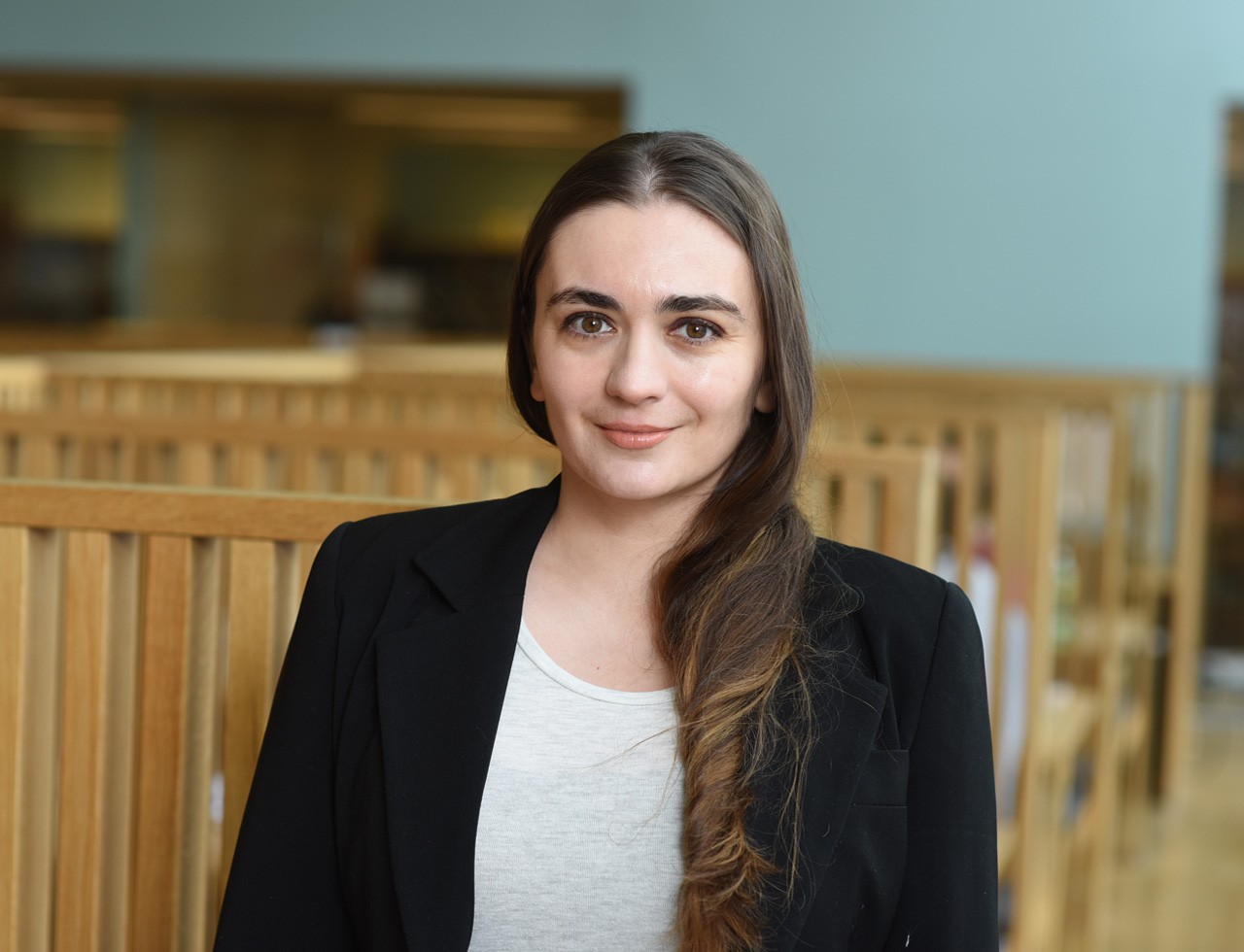Staff Profile: Polyxeni Georgiadi

An Interview with Polyxeni Georgiadi, with Abbey Lovell
What is your role at Columbia University Libraries and what is your day-to-day work like?
I am responsible for cataloging all Greek and Ancient Greek materials, Greek comics, fine art and architecture books, and works of fiction in other European languages that are acquired by Columbia University Libraries. As part of the Collections Acquisitions & Description department, I make the Libraries’ collections accessible to students, faculty, and researchers by creating searchable records for library materials and assigning call numbers. Our team works together to make catalog records as clear, complete, and easy-to-find as possible for library users. We need to be both productive and precise and it gives me great satisfaction to know that the quality of our records is as important as the quantity produced.
Cataloging practices have changed over time and even after so many years in the Libraries, I am still learning and discovering. The technology used to search library catalogs and discover new materials is evolving and we must adapt to new ways of cataloging along with it. The transition can be challenging, but willingness to learn and adapt is key.
I’m also always excited when I receive a new shipment from Greece because I look forward to finding out about new publications. Being able to share these works and my knowledge about Greece with colleagues and library users is great.
What was your path – both personally and professionally – to your current position?
My background is in music with a focus in music theory. I have a Master’s degree in Music as well as a degree in Traditional Harmony. My thesis was about creating and presenting a set of original compositions, research that combined my knowledge of classical music with influences of contemporary music. (I’m pleased to say that a copy of my thesis is available in Columbia’s Music & Arts Library!) Now, what does music have to do with cataloging academic books? Well to me, there is common ground in the attention to detail required by both music and cataloging. A trained eye can catch errors in a catalog record like a trained ear can isolate dissonance. There is no room for mistakes when I create a new record because I need to ensure that materials can be searched and discovered by library users. However, my knowledge of the Greek language was the true steppingstone to my current role. It was important that I retained my understanding of Greek – you never know where or when a path may open to you in a direction that you never expected!
What would surprise library users about the "behind the scenes" work of libraries?
Accurate cataloging is very important to keeping all library materials in order and ensuring that patrons can quickly find the items they need. The ease with which users can search the Libraries’ collections and locate materials is all due to the work that happens “behind the scenes.” There is a process that begins the moment a new book is delivered to the Libraries and ends with its place on the library shelf; careful, detailed cataloging is a crucial part of that process. We are the ones who maintain clarity and order in the library system.
What are your research or academic interests?
Working in an academic library – the environment itself – inspires me to learn something new. Now, I would like to focus on library studies and in particular, music librarianship. I’ll put my M.A. in Music to use and build from there! Additionally, I would like to learn more about music therapy and its various uses. I’ve always been fascinated by this field and its many promising applications.
What is one thing – professional or personal – you hope to learn in the next year?
As a child in Greece, I observed my grandmother cooking and serving our family around the table. Cooking was sort of a ritual and everything had to be made impeccably, especially during the holidays. Reminiscing about it now, I would like to keep the tradition alive. Since I passionately enjoy cooking, I would like to take a class in fine Greek cuisine. It would be fun to keep the rustic style of Greek food, but add a modern twist to it. Not only is Greek cuisine healthy and delicious, it’s also appreciated by many people around the world. I’m looking forward to learning more!
What do you enjoy doing in your free time?
Making the most of our free time is essential to a harmonious balance between work and life and socializing is one thing that I always like to do in mine. I try to manage my time in a way so that even a sliver of free time can be used efficiently. Spending time with my family, friends, and colleagues and sharing homemade meals are things that I cherish and love to do outside of work.